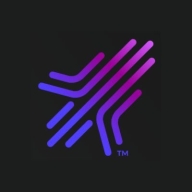

Jitterbit Harmony and Rocket Zena are competing products in the integration and automation space. Rocket Zena tends to have the upper hand due to its advanced functionalities and overall user satisfaction, particularly for businesses with complex needs.
Features: Jitterbit Harmony offers essential features like robust integration capabilities, real-time data processing, and user-friendly operation. Rocket Zena provides advanced automation features, a comprehensive API ecosystem, and extensive data transformation tools. Its deep integration options make it a strong contender feature-wise.
Room for Improvement: Jitterbit Harmony could enhance its complex automation functionalities, expand its API ecosystem, and offer more advanced data transformation tools. Rocket Zena might improve by simplifying its deployment process, reducing its cost structure for smaller businesses, and enhancing its user interface to make it more intuitive for beginners.
Ease of Deployment and Customer Service: Jitterbit Harmony is known for quick installation and proactive customer service. Rocket Zena provides seamless cloud installations and offers 24/7 dedicated support. Jitterbit Harmony offers a simpler deployment, while Rocket Zena provides comprehensive support packages which can be beneficial for complex enterprise needs.
Pricing and ROI: Jitterbit Harmony provides a lower setup cost combined with a good return on investment, making it attractive for cost-effective solutions. Rocket Zena, though more expensive, offers long-term value with its advanced capabilities, providing substantial ROI for businesses with intricate requirements.


Jitterbit Harmony is a comprehensive platform for data integration and API management, enabling seamless synchronization and automation across cloud-based and on-premises applications.
Users leverage Jitterbit Harmony to integrate systems like ERP and CRM applications, simplifying complex data workflows and enhancing automation. It supports efficient data migration and ensures smooth connectivity, handling diverse integration needs and helping streamline business processes. Users emphasize its drag-and-drop functionality and extensive templates, which contribute to its robust performance. However, improvements are needed in data mapping, error message clarity, and documentation, especially when dealing with large data volumes.
What are the key features of Jitterbit Harmony?Companies across retail, manufacturing, healthcare, and finance sectors use Jitterbit Harmony to integrate critical applications and automate workflows. In retail, it connects inventory systems with sales platforms, reducing manual effort. Manufacturers sync their ERP systems with supply chain software, optimizing operations. Healthcare organizations integrate patient management systems with insurance databases, streamlining patient care. Financial institutions use it to connect accounting software with banking systems, ensuring real-time financial data exchange.
Rocket Zena automates and schedules tasks across mainframe, Linux, and Windows environments, reducing human errors and managing dependencies.
Rocket Zena serves as a powerful tool for scheduling and automating tasks across multiple platforms. Its capabilities extend to managing batch jobs, ETLs, SFTP transfers, database backups, organizing workflows, running scripts, managing payroll tasks, and customizing schedules to avoid manual interventions. Users benefit from a user-friendly interface and efficient containerized deployment with clear process visualization through diagram and whiteboard features. The platform supports file transfers, automates workflows, saves time, and reduces errors, with straightforward licensing and commendable technical support.
What are the most important features?Rocket Zena sees implementations in industries requiring robust task scheduling and automation such as finance for managing payroll and database backups, healthcare for handling ETL operations and workflow organization, and IT for running scripts and managing batch jobs. Adaptation to industry-specific needs showcases its versatility, although users seek improvements in scheduling mapping, UI navigation, and desire cloud availability.
We monitor all Workload Automation reviews to prevent fraudulent reviews and keep review quality high. We do not post reviews by company employees or direct competitors. We validate each review for authenticity via cross-reference with LinkedIn, and personal follow-up with the reviewer when necessary.